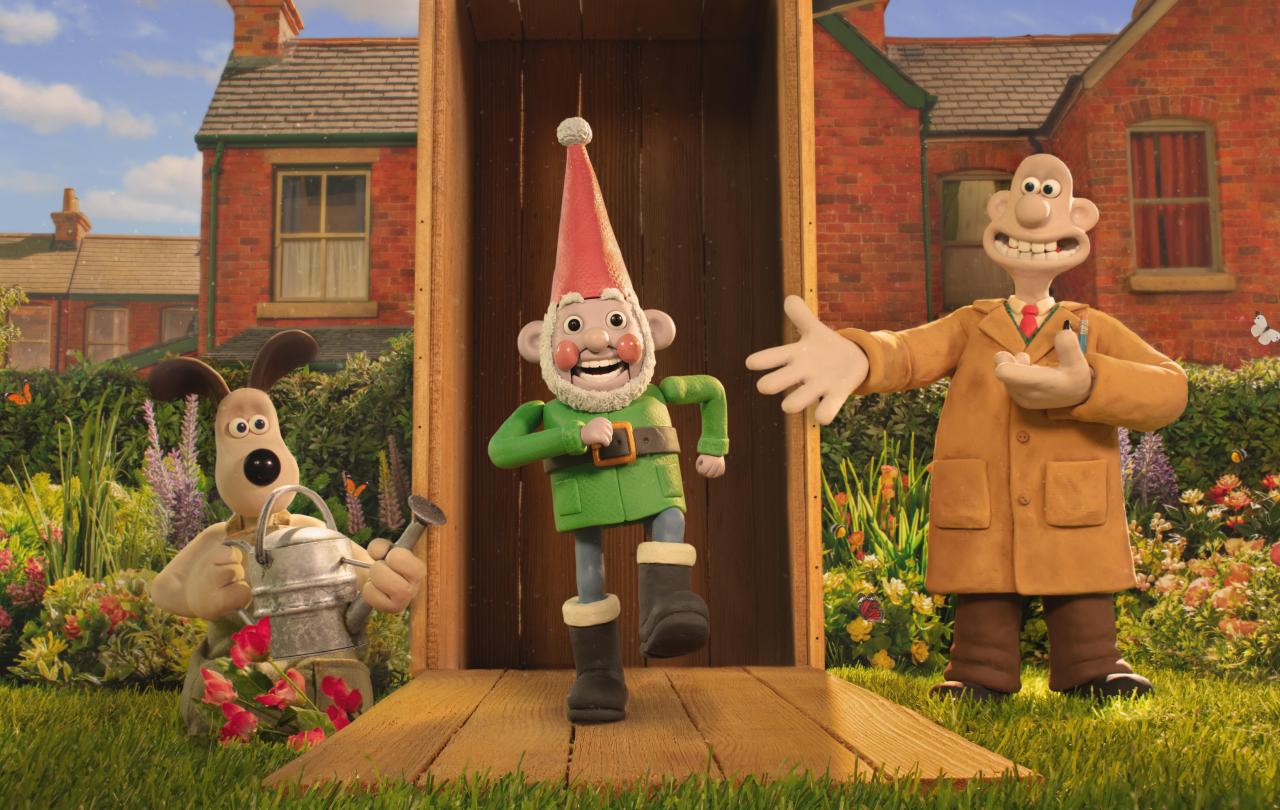
In 1993, Aardman Animations released Wallace & Gromit: The Wrong Trousers. It follows hapless inventor Wallace and his long-suffering dog Gromit as they rent out their spare room to a penguin, Feathers McGraw, who is subsequently revealed to be a master criminal, narrowly pipping Anthony Hopkins’ Hannibal Lecter and Javier Bardem’s Anton Chigurh to the title of cinema’s most sinister villain. (Trust me: you will never look at a red rubber glove the same way after The Wrong Trousers).
At the film’s climax, perpetual good-boy Gromit chases McGraw through the house via a series of increasingly convoluted model railway tracks, even as he has to build the very tracks he’s riding on. There is a strong argument to be made that it is best scene in cinematic history.
Fast forward to Christmas, 2024, and Wallace and Gromit: Vengeance Most Fowl is shown on BBC One on Christmas Day. It tells the story of Feathers McGraw – who has lost none of his quiet menace – plotting revenge on the eponymous duo, this time by taking over a series of technologically advanced garden gnomes Wallace has invented.
While nothing in Vengeance Most Fowl tops the train chase from The Wrong Trousers – indeed, how can one improve on perfection? – it is another magnificent addition to the Wallace and Gromit oeuvre.
Moreover, it is a remarkably prescient tale about the dangers of technology, and the beauty of humanity. It is the perfect antidote to much of modern cinema and almost single-handedly restored by faith in film as an artistic medium. Vengeance Most Fowl is such a success because it oozes humanity in every single frame. However, this humanity appears most clearly in three distinct ways.
First, in its story. The inciting MacGuffin of Vengeance Most Fowl is the new garden gnomes Wallace has concocted. Feathers McGraw takes control of Wallace’s gnomes by hacking into its software and switching it from ‘good’ mode to 'evil’ mode. (Like everything in life, this is a joke The Simpsons got to first: in 1992’s “Treehouse of Horror III,” Homer accidently buys Bart a Krusty the Clown doll accidently set to ‘evil’ mode rather than ‘good’ mode.)
Vengeance Most Fowl offers a more nuanced take on technology than most. It’s neither straightforwardly good nor straightforwardly bad; it depends entirely on the user. We see the benefits of the gnomes as they help people with their gardening. But put them in the hands of the wrong person – or penguin – and they become tools for evil. Vengeance Most Fowl is not an anti-technology film, then, but is realistic about the fact that some humans – and, indeed, penguins – will inevitably seek to use technology for nefarious ends.
Second, in its voice acting. Vengeance Most Fowl is the first Wallace & Gromit film released following the death of long-standing Wallace voice actor Peter Sallis. It is genuinely remarkable, then, that no AI was used by Aardman to replicate his voice. Instead, this is left to Ben Whitehead and the results are certainly worth it.
Where many film studios or production companies would have used technology to offer a ‘fake’ Sallis performance – think Peter Cushing in Rogue One: A Star Wars Story, for example, or even the use of AI to reconstruct John Lennon’s voice for the lost Beatles single “Now and Then” – Aardman did not. Instead, they made a very conscious decision to have Whitehead offer a deeply human performance as Wallace. When (SPOILER ALERT) at the end of the film Wallace tells Gromit that he can live without inventing, but he can’t live without his dog, the emotional pay-off is so genuine because it is real. Because it is a thoroughly human moment.
Third, in its cinematography. Claymation is a medium only adopted by artists who hate themselves. That’s the only reason I can think for making an entire film using such a slow, tedious process. It is also a deeply human art form. It is the result of tens of thousands of hours of painstaking and repetitive work. It is yet another conscious choice by the team at Aardman to create something that is thoroughly and unmistakably human.
All of this, I think, says something about how Wallace & Gromit manages to feel like such a breath of fresh air. It has not been committee-d to death, or market research-ed into beige-ness. It is full of stupid little jokes (like Gromit reading Virginia Woof) and localised references (“Yorkshire Border: Keep Out!” followed by “Lancashire Border: No, Your Keep Out!”).
The cost of making Wallace & Gromit films is too costly for them to be cheap, mass-produced disappointments churned out at an increasing rate of knots. They are lovingly hand-crafted works of art and, given the current state of much cinema and TV, they are nothing short of minor miracles.
Wallace & Gromit is an utterly human series of films. It isn’t perfect. And that’s what makes it perfect.
Join with us - Behind the Seen
Seen & Unseen is free for everyone and is made possible through the generosity of our amazing community of supporters.
If you’re enjoying Seen & Unseen, would you consider making a gift towards our work?
Alongside other benefits (book discounts etc.), you’ll receive an extra fortnightly email from me sharing what I’m reading and my reflections on the ideas that are shaping our times.
Graham Tomlin
Editor-in-Chief




